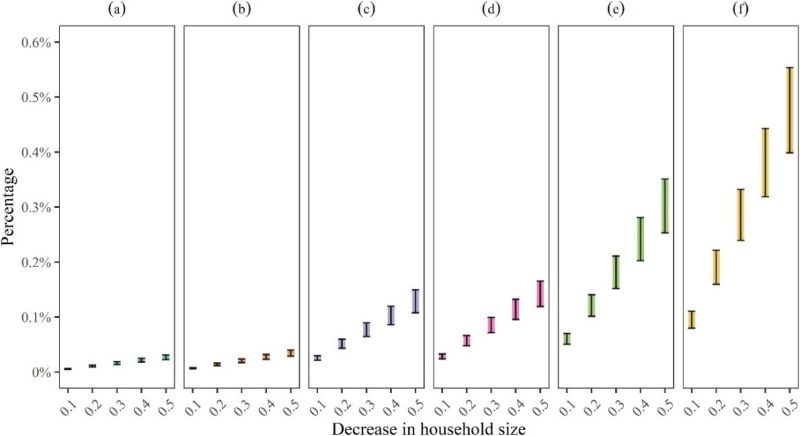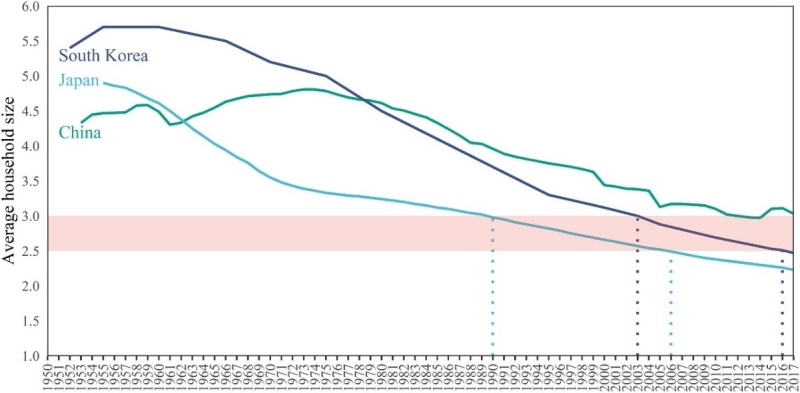Information of Paper
Implications of declining household economies of scale on electricity consumption and sustainability in China
Authors: Wenchao Wu, Yuko Kanamori, Runsen Zhang, Qian Zhou, Kiyoshi Takahashi, Toshihiko Masui
Year: 2021
Journal: Ecological Economics, 184, 106981
Keywords
Household economies of scale, Panel data method, Electricity consumption, Sustainability impact, China
Abstract
The average household size in China has declined over the past few decades and will continue to drop, which leads to a loss of scale economies. Its implications for electricity demand and sustainability could be especially profound because of the high ecological/environmental intensity of electricity in China and the expected boom in demand. Using nationally representative household survey panels from 2010 to 2016, we identified substantial household scale economies in electricity consumption. Specifically, reducing household size by one incurs a 17.0–23.6% increase in consumption. We further assessed the ecological/environmental implications in China. CO2 emission, water withdrawal, smoke ash emission, SO2 emission, NOx emission, and industrial wastewater discharge were found to increase with a smaller household size.

For example, a household size reduction of 0.5 (to 2.5 members) by 2030–2035 could result in a 0.5% increase in CO2 emission and a 0.3% increase in water withdrawal as compared with the levels in 2015. The increase in CO2 emission is almost equal to the entire emissions of Portugal. It is therefore essential to incorporate scale effect into energy demand projections and sustainability assessments. The results also highlight the urgency in transitioning to cleaner energy since household size shrinkage is occurring globally.





